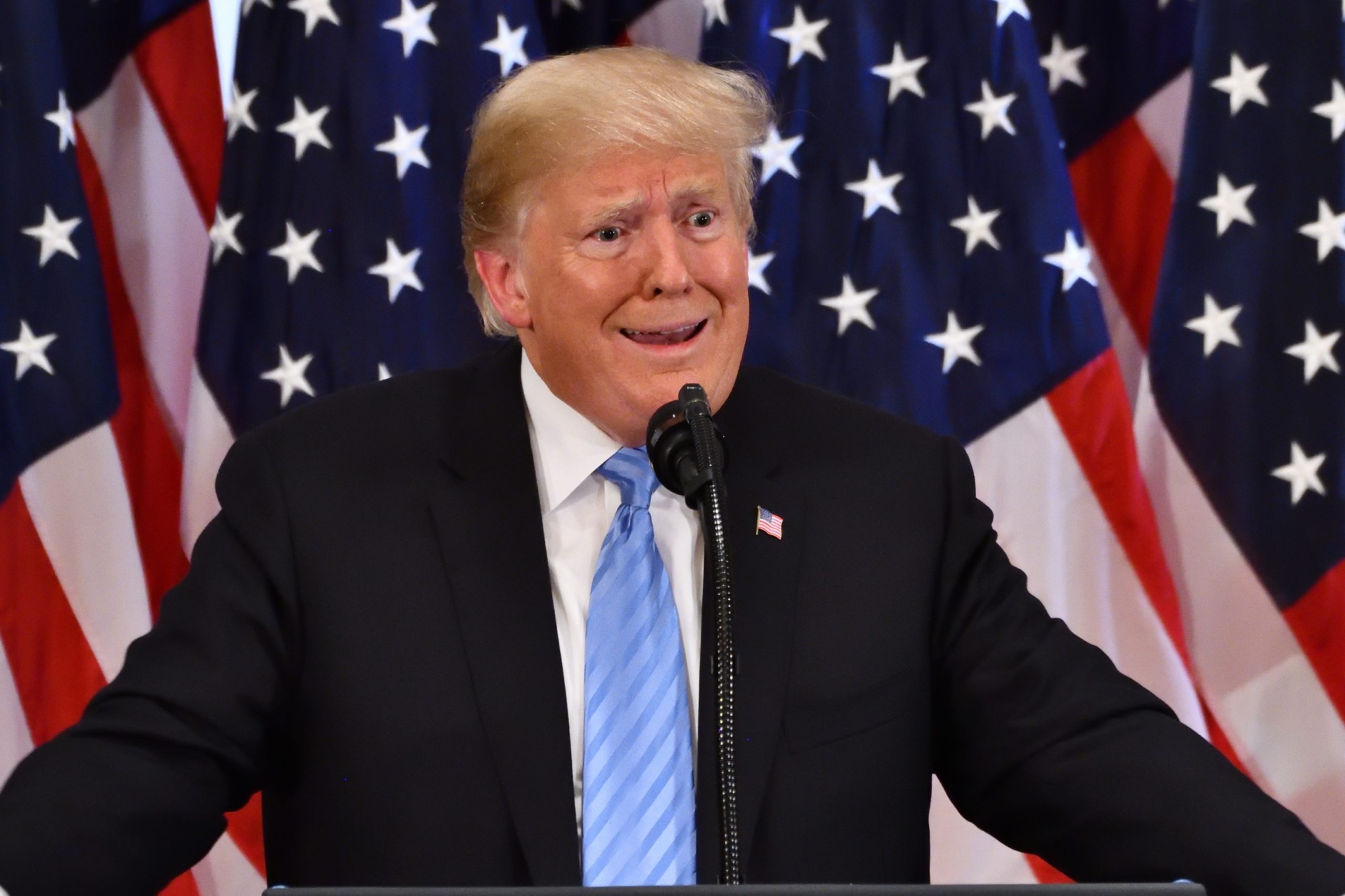What You Need To Know About Trump’s SCOTUS Shortlist

NEW YORK, NY – SEPTEMBER 26, 2018: President Donald Trump gestures to emphasize an issue at a press conference held at the Lotte Palace Hotel in the Villard Room. Credit: Shutterstock/Evan El-Amin
Ruth Bader Ginsburg was a trailblazer — the second woman to serve on the Supreme Court, the first Jewish woman, and a voice for all Americans, not just the wealthy and powerful. In the wake of Justice Ginsburg’s passing, all eyes are on President Trump to see who he wants to force through as her successor. But his so-called “shortlist” of Supreme Court nominees, now topping out at some 45 names, is a political document. It is red meat for conservatives, and that’s no less true in the immediate wake of Justice Ruth Bader Ginsburg’s death.
By Saturday, Trump had already purportedly floated to McConnell three names from the list as prospects to succeed Ginsburg — Amy Coney Barrett, Barbara Lagoa, and Amul Thapar — though he has also claimed he will appoint a woman, which would rule out Thapar. But even before looking into their records, it’s important to keep in mind what is generally known about Trump’s vision for the courts, and the Supreme Court specifically.
There are two litmus tests that Trump has previously said he would apply to all of his judicial nominations. First, he has repeatedly said he would only appoint judges who would overturn Roe v. Wade. During one of his presidential debates against Hillary Clinton, he specifically said that he expected that if he could appoint two or three justice, overturning Roe “will happen automatically” because he would be “appointing pro-life judges.”
The second litmus test is a commitment to overturning the Affordable Care Act, which would automatically cause 20 million Americans to lose their current health coverage. At least 135 million Americans with preexisting conditions would also lose their protections, which doesn’t even account for the millions for whom COVID-19 will now be treated as a preexisting condition. Trump tweeted during his campaign that his nominees will do “the right thing” — toss the law instead of uphold it.
That means any nominee Trump puts forward should be an automatic nonstarter. Barrett, Lagoa, and Thapar are all currently serving on federal courts of appeal, having been nominated to them by Trump. That means they’ve already passed his litmus tests once.
Filling Ginsburg’s seat with any such nominee would establish a significant conservative majority on the Supreme Court that could hold back progress for decades to come.
Among the three names floated, all have already used their power on the courts to roll back civil rights. Barrett has joined rulings on the Seventh Circuit allowing for racial segregation and age discrimination in the workplace, and she issued a dissent defending felons’ fun rights that strayed from every appellate court that had ever taken up the issue. She’s also fought to block women’s access to contraception.
Lagoa has joined rulings on the Eleventh Circuit allowing a poll tax for voting for formerly incarcerated people and curtailing immigrants’ rights. She notably refused to recuse herself in the voting rights case despite having previously participated in the case on the Florida Supreme Court, violating the commitment she made, under oath, during her Senate confirmation to do just that. Lagoa has also repeatedly ruled against workers, including those who faced retaliation for reporting racist comments or seeking workers’ compensation.
Thapar’s disturbingly long record includes rulings that would have prevented a Flint, Michigan family from suing officials over lead-tainted water; that would have prevented a woman from suing her employer after firing her for being pregnant; that allowed Ohio to defund Planned Parenthood; that protected an Akron police officer who shot a Black man in the back; and that forced a family seeking asylum to return to Senegal, where they would be targeted for female genital mutilation.
These are the kinds of judges Senate Republicans are hoping will succeed a juggernaut for civil rights like Ruth Bader Ginsburg. These are the kinds of judges Senate Republicans are willing to embrace their own rank hypocrisy to confirm.
In its length and consistency, Trump’s “shortlist” makes clear that any nominee he might name should not be confirmed under any circumstance.
(Photo credit: Shutterstock/Evan El-Amin.)
